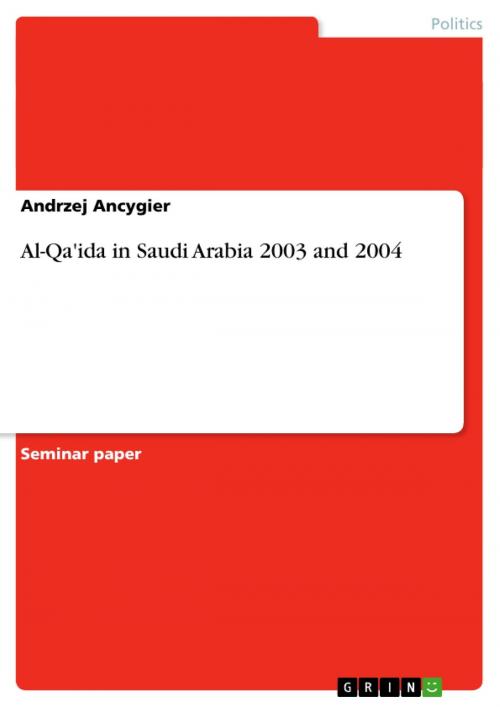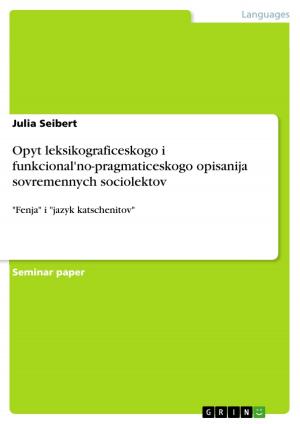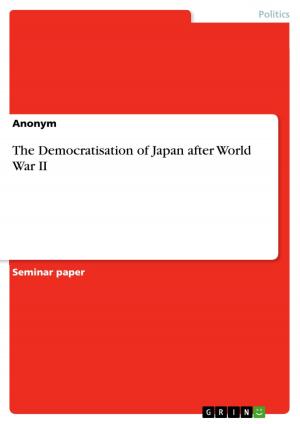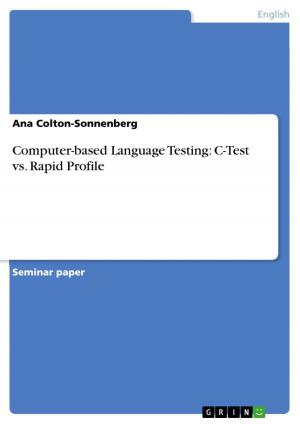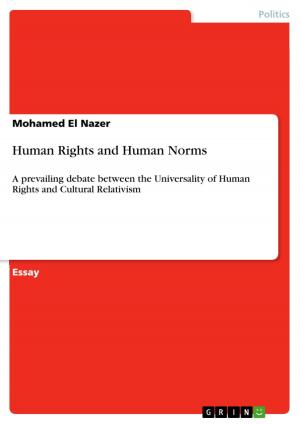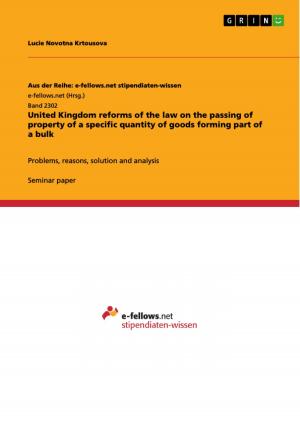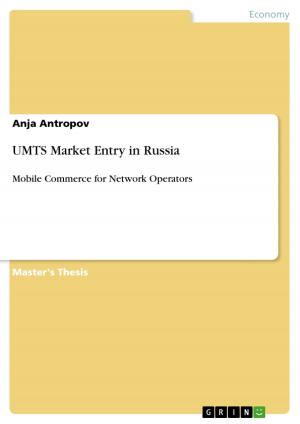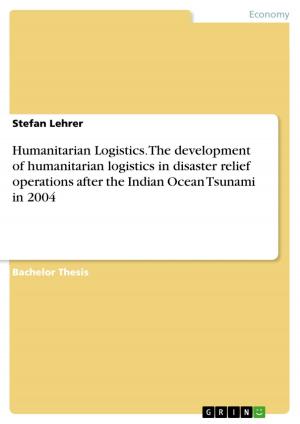Al-Qa'ida in Saudi Arabia 2003 and 2004
Nonfiction, Social & Cultural Studies, Political Science, International, International Relations| Author: | Andrzej Ancygier | ISBN: | 9783638386364 |
| Publisher: | GRIN Publishing | Publication: | June 11, 2005 |
| Imprint: | GRIN Publishing | Language: | English |
| Author: | Andrzej Ancygier |
| ISBN: | 9783638386364 |
| Publisher: | GRIN Publishing |
| Publication: | June 11, 2005 |
| Imprint: | GRIN Publishing |
| Language: | English |
Seminar paper from the year 2005 in the subject Politics - International Politics - Region: Near East, Near Orient, grade: 1,0, Free University of Berlin (Politologie), course: Islamischer Terrorismus im Spannungsfeld zwischen Transnationalität und lokaler Zielsetzung, 42 entries in the bibliography, language: English, abstract: Saudi Arabia is without a doubt the most important country in the Middle East. Its economic importance for the world and religious importance for Muslims could hardly be exaggerated. Therefore, when the first bombs exploded in Riyadh in May 2003, the shockwaves could be felt all around the world. Prophecies of Saudi rulers being overthrown and the Saudi Kingdom sinking into the chaos of civil war dominated the world press. The picture of Saudi Arabia at the beginning of 2005 - almost two years after the attacks - looks much different. Saudi Arabia seems - for the time being - rather stable and the events of May 12 th and November 8 th 2003 appear to be a thing of a past. The monster of Islamic radicalism, which becomes alive once in a while in the Kingdom, seems to be defeated for now. But the fight was neither easy nor won forever. In the meantime war in neighboring Iraq, which motivated most of those who wanted to fight against The Americans to leave the Kingdom, made it easier for Saudi rulers to fight against those few who stayed. Very soon, however, the situation is due to change. A history and analysis of the way that Saudi al -Qa'ida acted in 2003 and 2004 may give a glimpse of the things to come after the situation in Iraq changes and the Mujahideen start coming back home, like they did after the wars in Afghanistan in the 1980s and again in 2001.
Seminar paper from the year 2005 in the subject Politics - International Politics - Region: Near East, Near Orient, grade: 1,0, Free University of Berlin (Politologie), course: Islamischer Terrorismus im Spannungsfeld zwischen Transnationalität und lokaler Zielsetzung, 42 entries in the bibliography, language: English, abstract: Saudi Arabia is without a doubt the most important country in the Middle East. Its economic importance for the world and religious importance for Muslims could hardly be exaggerated. Therefore, when the first bombs exploded in Riyadh in May 2003, the shockwaves could be felt all around the world. Prophecies of Saudi rulers being overthrown and the Saudi Kingdom sinking into the chaos of civil war dominated the world press. The picture of Saudi Arabia at the beginning of 2005 - almost two years after the attacks - looks much different. Saudi Arabia seems - for the time being - rather stable and the events of May 12 th and November 8 th 2003 appear to be a thing of a past. The monster of Islamic radicalism, which becomes alive once in a while in the Kingdom, seems to be defeated for now. But the fight was neither easy nor won forever. In the meantime war in neighboring Iraq, which motivated most of those who wanted to fight against The Americans to leave the Kingdom, made it easier for Saudi rulers to fight against those few who stayed. Very soon, however, the situation is due to change. A history and analysis of the way that Saudi al -Qa'ida acted in 2003 and 2004 may give a glimpse of the things to come after the situation in Iraq changes and the Mujahideen start coming back home, like they did after the wars in Afghanistan in the 1980s and again in 2001.
